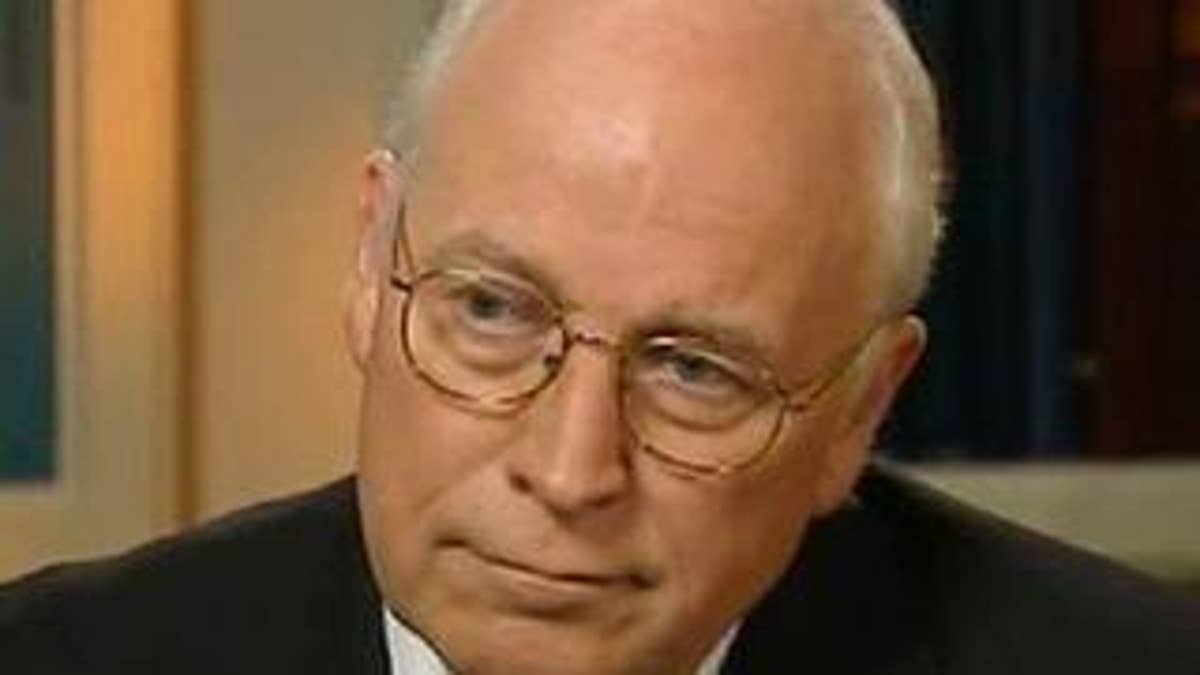
Former Vice President Dick Cheney said Sunday that intelligence operations under the Bush administration potentially saved "hundreds of thousands" of lives and suggested that President Obama would "sacrifice" Americans by dismantling the counter-terrorism tools of his predecessor.
The former vice president, appearing on CBS' "Face the Nation," escalated his defense of Bush-era tactics in the War on Terror while turning up his criticism of President Obama's approach to that fight. He specifically touted the success of controversial surveillance and interrogation programs used after the Sept. 11 attacks.
And he renewed the call he made last month for the administration to declassify memos that he claims show U.S. officials, by using "enhanced" interrogation techniques on terror suspects, learned information that saved lives.
"I am convinced, absolutely convinced, that we saved thousands, perhaps hundreds of thousands, of lives," Cheney said, claiming he has "no regrets" about the actions of the administration. He called the federal government's efforts since 2001 "one of the greatest success stories of American intelligence."
Cheney has been particularly vocal in defending the Bush administration's counter-terrorism programs, as some Democrats on Capitol Hill call for deeper probes into how controversial interrogation guidelines were drafted and executed. He suggested Sunday that he feels he is providing the lone voice of dissent as Democrats line up to criticize Bush officials -- including the lawyers who drafted the guidelines for the interrogation techniques.
"If I don't speak out, then where do we find ourselves?" he said, calling charges that the Bush administration sanctioned torture "absolutely false."
Cheney continued to argue that the Obama administration, by canceling Bush-era policies, will eliminate the "safeguards that we've had for the last eight years" and "reduce the intelligence flow."
"It was about intelligence. It was about finding out what Al Qaeda was going to do," Cheney said.
He said, for instance, that waterboarding Sept. 11 mastermind Khalid Sheik Mohammed yielded "vast quantities and invaluable information about Al Qaeda."
Obama has said that he's outlawing such interrogation tactics so as to retain the moral high ground in the fight against extremists. Critics of the tactics also say they served as a vital recruiting tool for groups like Al Qaeda.
Cheney rejected the suggestion that using the controversial tactics undermines U.S. goals.
"Well, then you'd have to say that, in effect, we're prepared to sacrifice American lives rather than run an intelligent interrogation program that would provide us the information we need to protect America," Cheney said.
Cheney would not get into much detail about what's contained in the memos he wants declassified. But he said they describe how planned terrorist attacks were thwarted.
Since requesting the documents, Cheney said he's received a letter of notification saying the process has started -- but he hasn't seen any results.
"They don't have any qualms at all about putting things out that can be used to be critical of the Bush administration policies. But when you've got memos out there that show precisely how much was achieved and how lives were saved as a result of these policies, they won't release those," he said. "At least, they haven't yet."




